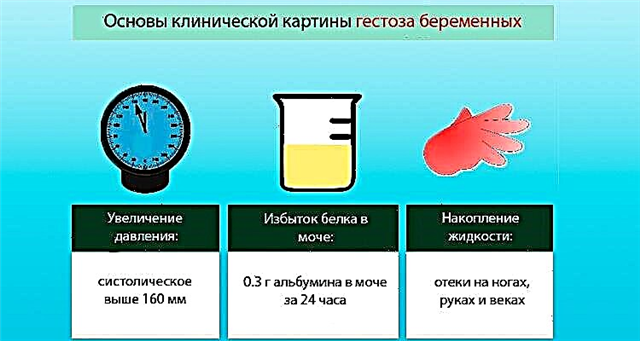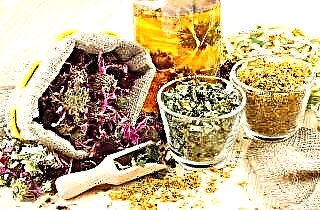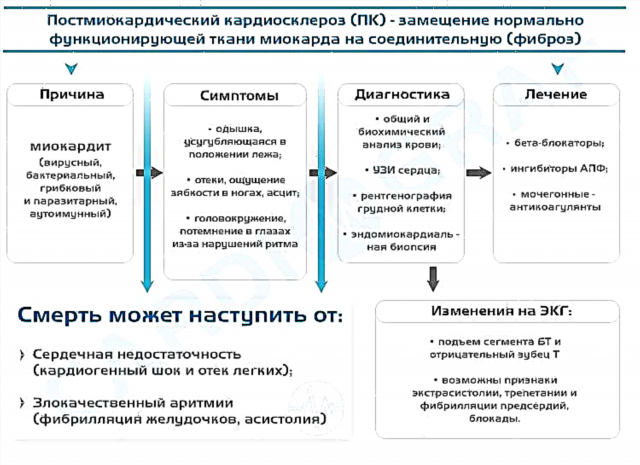When a sore throat appears, we do not always go to the doctor right away. At first, we try to cope with the disease on our own, which does not always lead to a positive result. For women with hepatitis B, self-medication is dangerous not only for oneself, but also for the child. Untimely referral to a specialist leads to complications, chronic inflammation, and refusal of the baby's breast. An incorrectly drawn up treatment plan can provoke lactostasis, a decrease in milk production in the mammary glands.
 Angina (tonsillitis) belongs to a group of bacterial diseases caused by streptococcus. Pathogenic microorganisms can enter the body through the respiratory tract, with contaminated food. With a decrease in immune defense, an intensification of infection is observed, the development of the disease.
Angina (tonsillitis) belongs to a group of bacterial diseases caused by streptococcus. Pathogenic microorganisms can enter the body through the respiratory tract, with contaminated food. With a decrease in immune defense, an intensification of infection is observed, the development of the disease.
Depending on the stability of the immune system, the inflammatory process can be localized exclusively in the tissue of the tonsils (with local lesion), spread to the uvula, soft palate, posterior pharyngeal wall, or penetrate into the general bloodstream, provoking generalization of the process. The transfer of the pathogen with the blood flow from the tonsils to the internal organs leads to their defeat.
The body is protected from infection by developing antibodies against the antigens of the pathogen. Considering the fact that the complex of streptococcal antigens is similar to the antigens of the kidneys, cardiac muscle, joints, the immune system develops antibodies against its own tissues.
Among the severe complications of streptococcal infection, it is worth highlighting sepsis, infectious toxic shock, rheumatic fever, heart damage (valvular defects, myocarditis, endocarditis, pericarditis), renal tissues (glomerulonephritis, pyelonephritis), joints (migratory arthritis).
Local complications are represented by the formation of abscesses, phlegmon, neck edema.
Why shouldn't you be afraid of antibiotics during lactation?
When a sore throat is diagnosed in a nursing mother, special attention is paid to the choice of antibacterial agents. The effectiveness of treatment depends on the group of antibiotics that affect streptococcus. We are talking about the typical forms of tonsillitis without taking into account herpetic sore throat, Simonovsky-Vincent, when other pathogens are isolated.
Many women, when breastfeeding with angina, fear the penetration of antibiotics into the breast milk received by the baby. As a result, the microflora in the child's body is disturbed up to the complete destruction of beneficial microorganisms. In such cases, dysbiosis is diagnosed, which requires long-term treatment to restore normal microflora.
Statistics indicate the appearance of symptoms of dysbiosis in 1 out of a dozen children due to the intake of antibacterial agents by the mother during the period lactation.
lactation.
Indeed, the penetration of the drug into the bloodstream ensures the destruction of pathogenic pathogens. However, the active substance also passes into milk, the baby's digestive tract. This is observed only with the use of certain groups of drugs. Knowing which antibiotics are prohibited during lactation, you can avoid many undesirable consequences.
Angina during breastfeeding requires the appointment of antibiotics, which have a detrimental effect on streptococci, staphylococci. These drugs include penicillins, macrolides, cephalosporins.
Amoxicillin is widely used in the treatment of breastfeeding women. Only 1% of the drug passes into milk, another small part is neutralized in the body of children. The rest of the antibiotic can lead to the death of a small number of beneficial microorganisms of the microflora, but they are quickly restored due to intact bacteria. In this case, disorders of the digestive functions are extremely rare or absent altogether.
When asked whether it is possible to feed children while taking antibiotics, one can definitely give a positive answer.
What antibiotics are allowed for lactation?
Can babies be fed while taking antibacterial agents? Approved drugs include:
- Amoxicillin belongs to the group of penicillins, the safest and most effective. No more than 1% of the dose of the drug penetrates into milk, therefore, adverse reactions are extremely rare.
- Ampicillin is less common for prescribing, however, it is indicated for women in the form of intramuscular injections in the absence of the possibility of taking tablet forms of Amoxicillin (severe forms of angina, disorders of the digestive function).
- Cephalexin is used in the presence of an allergic reaction to the pinicillin group or the resistance of the pathogen to them. It penetrates into milk in a minimal amount, it is not dangerous for children.
- Erythromycin belongs to a number of macrolides, it is quite effective in tonsillitis. A small part of the active substance passes into the milk. It is prescribed for the resistance of the pathogenic microorganism to penicillins, cephalosporins.
It is worth noting that the instructions for antibacterial agents indicate that it is contraindicated to breastfeed a child during antibiotic therapy. However, under the supervision of a physician, antibiotics are still prescribed in a strictly defined dosage, with a clearly limited period.
Additional treatment for angina
Prescribing antibacterial agents does not guarantee recovery.
Gargling is an essential component of effective treatment. The procedure has a beneficial effect due to the removal of pathogenic microorganisms from the body, in particular, the oral cavity.
To rinse the throat (at least 5 times a day), antiseptic agents are used, for example, Miramistin, Furacilin, a solution of salt, soda (1 tsp per glass of water).
glass of water).
It is allowed to irrigate the tonsils with Ingalipt, Geksoral. It is also recommended to dissolve the tablets between rinses. Lizobakt is suitable for this.
If a woman has hyperthermia, it is allowed to use medicines with paracetamol.
The catarrhal form of angina can be cured without antibiotics only with early diagnosis, the beginning of complex treatment with rinsing the throat, irrigation of the tonsils and resorption of antiseptic tablets.
Also, do not forget about strict bed rest, drinking plenty of fluids, taking multivitamin complexes.
Control over children's health
While a woman has tonsillitis during lactation, antibiotic therapy is carried out, you need to monitor the child's condition in order to take timely measures to prevent complications. Despite the safety of approved antibacterial agents, the child may have individual reactions to drugs.
The most commonly diagnosed dysbiosis associated with the intake of antibacterial agents by the mother. There are also allergic reactions, disorders of the digestive function (quite rare).
In order to timely detect adverse reactions in children, it is necessary:
- carefully examine the skin for the appearance of rashes, itching, foci of redness;
- control the psycho-emotional state (the appearance of moodiness, tearfulness, sleep disturbances);
- observe stools (diarrhea, the presence of undigested lumps), the appearance of abdominal pain, colic;
- monitor the child's appetite.
Angina in a nursing mother requires a special attitude not only to the condition of the woman, but also to the health of the child. If these signs appear, you should consult a doctor.
What to do if adverse reactions occur in children?
Against the background of antibiotic therapy for the mother, children may experience various adverse reactions that need to be diagnosed at the initial stage.
If angina during breastfeeding in a nursing mother (during lactation) was treated with amoxicillin, when a reaction occurs in a child, the antibiotic of this group is canceled. Instead, Azithromycin or Cephalexin is prescribed.
The most difficult situation is observed if children develop dysbiosis while taking any antibacterial drug by the mother. In this case, your doctor may suggest that you stop feeding for a short time. In order for this process to take place without prejudice to the health of the child, it is recommended:
- consult a pediatrician for the selection of mixtures that are most suitable for the child, taking into account the age, severity of the disease;
- stop lactation immediately when symptoms of dysbiosis appear;
- develop with a doctor a regimen, frequency, volume of one-time feeding;
- monitor the child's condition after using the mixtures.
After the end of antibiotic therapy, it is necessary to take sorbents (Entrosgel) for a couple of days to completely remove the drug from the mother's body. After that, it is allowed to resume breastfeeding.
In addition, a woman needs to regularly express milk in order to avoid mastitis, cessation of milk production. Usually, when agreeing on the type of antibiotic, its dose, the duration of the intake of adverse reactions from the child is not noted. In this regard, it is worth noting that independent attempts to treat angina can not only lead to complications, a worsening of the woman's condition, but also seriously harm the child.



